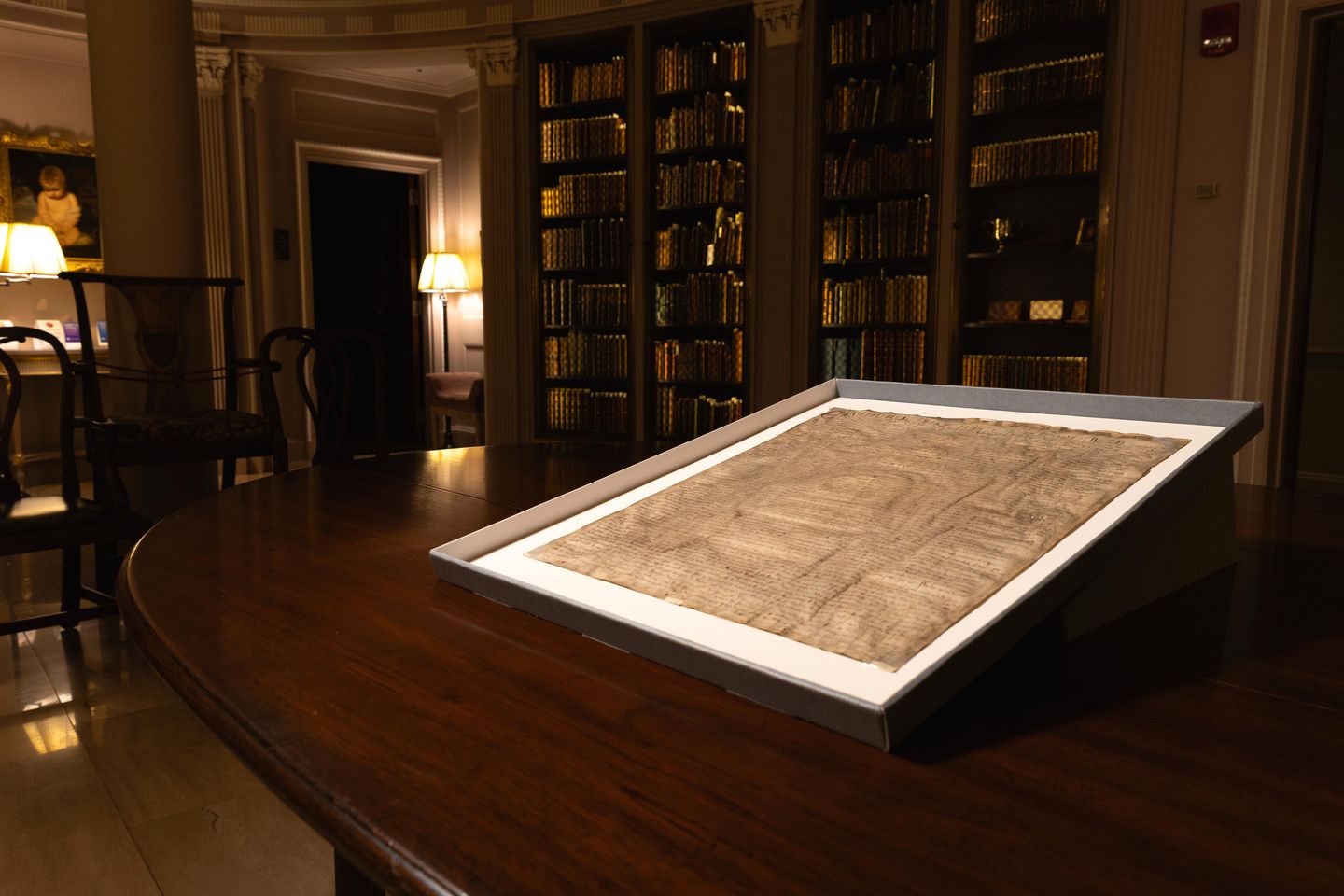
What Harvard University thought was a cheap, unofficial copy of the Magna Carta it owns is in fact a rare original of the document from an updated edition issued by King Edward I of England in 1300.
The school first bought the document, described in an auction catalogue as a “somewhat rubbed and damp-stained” copy dated to 1327, in 1946 for $27.50 (worth almost $480 today). New research by British scholars has revealed it’s an original version, Harvard Law School said in a release.
The first Magna Carta, a royal charter of rights, was signed by King John of England in 1215 following demands by unruly vassals, though it wasn’t secured as the law of the land until after the king died in 1216 and a short civil war. The document was updated over the succeeding years.
After looking at a digitized upload of the Harvard document, a King’s College London researcher realized it could be an original. Working with others from the U.K.’s University of East Anglia, they determined that the document was an official version dating to 1300 as opposed to a knockoff.
The document shares dimensions with six other known copies of the 1300 edition of the Magna Carta, 489 by 473 millimeters, and has similar handwriting, starting with a large capital E at the start of the king’s name at the beginning of the document.
“Harvard’s Magna Carta deserves celebration, not as some mere copy, stained and faded, but as an original of one of the most significant documents in world constitutional history, a cornerstone of freedoms past, present and yet to be won,” King’s College London professor David Carpenter said.
The researchers believe that the Harvard copy could have been one sent to the former parliamentary borough of Appleby in northwestern England. About 24 existing versions of the Magna Carta were issued between 1215 and 1300, according to the BBC.
Whereas Harvard got the document cheap, if sold again at auction it could fetch millions.
“I would hesitate to suggest a figure, but the 1297 Magna Carta that sold at auction in New York in 2007 fetched $21 million, so we’re talking about a very large sum of money,” UEA professor Nicholas Vincent told the BBC.












